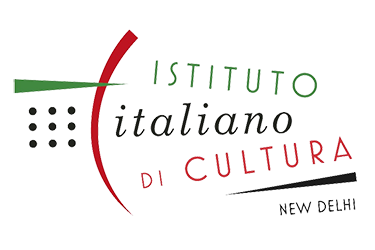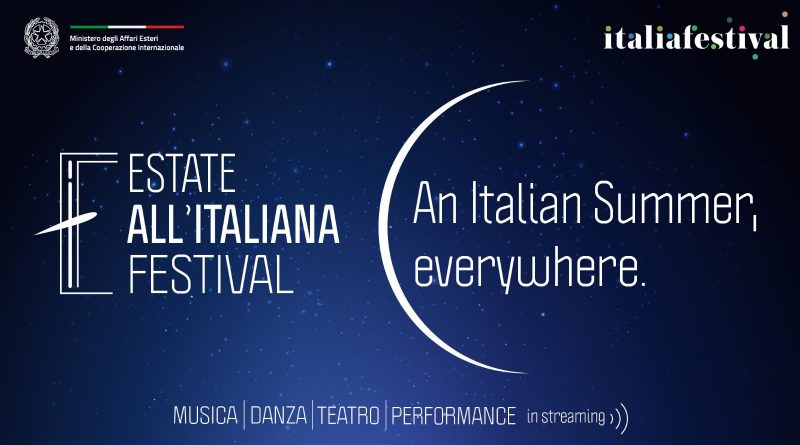Estate all’Italiana Festival
The Italian Ministry of Foreign Affairs and International Cooperation has launched the initiative “Estate all’Italiana Festival” (Summer Italian Style Festival) through which it is offering its branches around the world access to watch more than twenty live concerts happening at various summer music festivals in Italy.
The concerts can be enjoyed for free and streamed on demand for 48 hours.
Emilia Romagna Festival | Opening Concert – I Solisti Veneti (“The Venetian Soloists”)
The Emilia Romagna Festival opens with a concert filled with indelible pages from the history of music, dedicated to Massimo Mercelli and the memory of Ezio Bosso. From the Cloisters of the San Domenico Museums, Forlì.
MASSIMO MERCELLI flute
GIULIANO CARELLA conductor
Giuseppe Tartini – 250th death anniversary
Symphony in G major
Flute and string concerto in G major
Gioachino Rossini
Third String Sonata in C major
Giovanni Sollima
Flute and String Contrafactus
Ottorino Respighi
Ancient Dances and Arias – Third Suite
Michael Nyman
First live performance of Flute Concerto No. 2
Dedicated to Massimo Mercelli and the memory of Ezio Bosso
Emilia Romagna Festival returns with a special edition dedicated to its first twenty years.
From 26 July until mid-September, the festival will celebrate this important milestone for the festival’s composers, with live events in some of the most magical and enchanted places in the region, in full compliance with new safety measures.
Among newcomers and big comebacks, the program will host great international artists such as Richard Galliano, Ramin Bahrami, Ivo Pogorelich, Moni Ovadia, the Cameristi della Scala ensemble, together with fantastic young talents including Cristian Lombardi, Lorenzo Albanese and Giulia Rimonda. A unique mix, bringing you quality music as always, with a focus on the excellence of the national scene that needs to be supported and promoted in this moment more than ever.
Borgate dal vivo | A rivedere le stelle (“To see, once more, the stars”).
Dante Alighieri’s famous quote is adapted in a story of music and words to evoke the desire for recovery and rebirth during this odd period. From the Sacra di San Michele, S. Ambrogio of Turin.
Elisabetta Bosio violin
Saulo Lucci narrator
Borgate dal vivo is an itinerant festival that embraces the small towns of the Alps. Borrowing from Dante Alighieri an expression that tells of re-opening, re-starting, re-birth. A return to life together, albeit in compliance with regulations that, at least for some time, will oblige us to respect rules of social distancing for our own safety and that of others, without having to renounce beauty. Elisabetta Bosio will enchant us during the sunset with her violin, while Saulo Lucci will recite the last song of Dante’s Inferno. Borgate dal vivo Festival takes by the hand those who, despite everything, want to be nourished by beauty again, to raise their eyes to heaven. “To see, once more, the stars.”
Ravenna Festival | O Oriens
O Oriens invokes an ancient music, being one of the seven Advent antiphons that came to us from the Eastern Mediterranean. From the Basilica of San Vitale (Ravenna).
sacred music of Matteo from Perugia
motets from the Codex of Cyprus (15th century)
The Ensemble “La fonte musica”
Michele Pasotti conduction and lute
Francesca Cassinari soprano
Alena Dantcheva soprano
Gianluca Ferrarini tenor
Massimo Altieri tenor
Efix Puleo vielle (arm)
Teodoro Baù vielle (leg)
Nathaniel Wood trombone
Ermes Giussani trombone
O Oriens is one of the seven Advent antiphons, also called “O antiphons” because their titles begin with the vocative particle “O”. Many of them, intoned polyphonically as motets, originated in the Eastern Mediterranean and reached us through the 15th-century Cyprus manuscript, now preserved in Turin. The codex includes anonymous music in the tradition of Ars Nova, as Cyprus was ruled by the French Lusignan family before the Venetian conquest in 1489. The concert is in the form of an imaginary dialogue between the anonymous Cypriot composers and Matteo Da Perugia, the first magister cappellae of the Milan Cathedral, whose work is found in a single manuscript (preserved in Modena) probably assembled in the early 15th century, at the same time when oriental scribes were writing down the motets of the French-Cypriot court.

